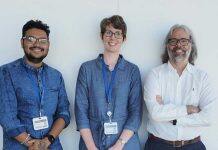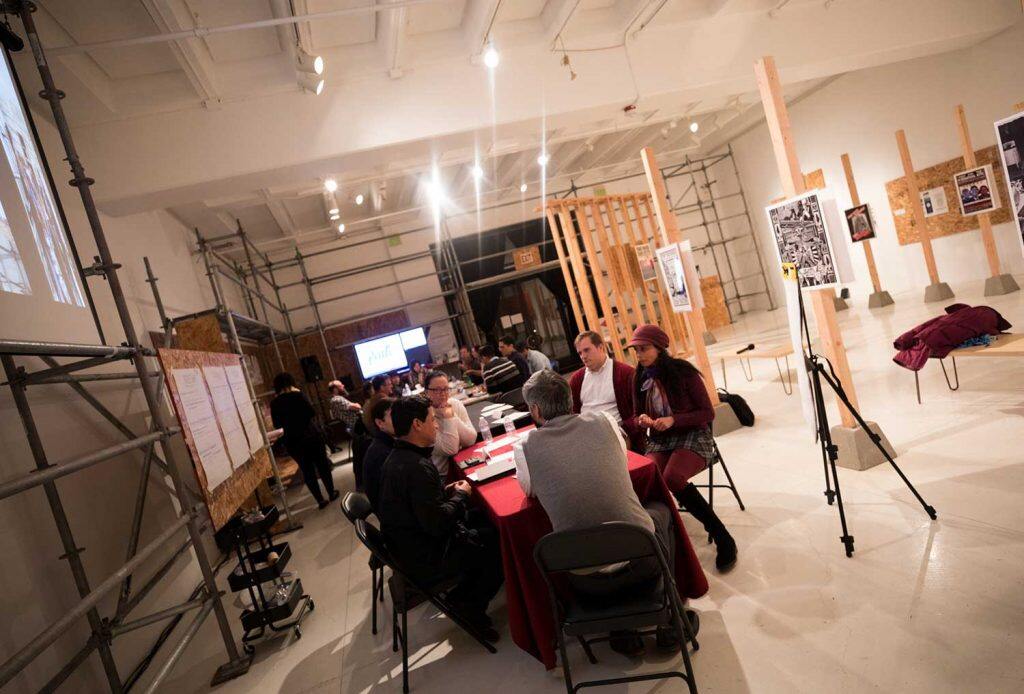

With support from The Andrew W. Mellon Foundation and in partnership with the San Diego Community College District, the UC San Diego Division of Arts and Humanities is this year launching the very first Integrated Internship fellowship, awarding full funding to three Ph.D. students for the 2020-2021 academic year.
The fellowships will embed the graduate students into the region’s community colleges to explore additional career options after completing their degrees, strengthen the student pipeline of transfer students to UC San Diego and innovate the classroom experience for a new set of leaders in higher education.
“This cross-institutional initiative is a foundational change in the way employment in higher education is perceived and addressed,” said Division of Arts and Humanities Dean Cristina Della Coletta. “With a clear emphasis on the public value of the arts and humanities, we are positioning our students for greater career diversity, and allowing them to assess their own skills, interests and goals in order to map a pathway for successful professional development.”
The new initiative addresses the need for trained professionals in all aspects of community college careers and encourages interested graduate students at UC San Diego to look toward community colleges as potential employers, from teaching to administrative roles that include academic affairs, student affairs and career counseling.
“A fellowship program for graduate students in the arts and humanities with community colleges is rare, so we were pleased to design an opportunity to create a pipeline of talent and attract more diversity,” said San Diego Community College District Vice Chancellor of Instructional Services Stephanie Bulger. “By providing an experience with faculty and administrative mentors to guide the fellows in a well-rounded experience of community colleges early in their career decision process, we hope they will consider community college professions as a career option when they graduate.”
The goal is to position new doctoral graduates for greater career diversity, with a clear emphasis on the public value of the humanities. The students are supported for one year and gain community college classroom access with established faculty, shadow current administrative staff and mentor community-college students on a yearlong research project.
Fully remote this year due to the pandemic, partners in the program are San Diego City, Miramar and Mesa colleges.
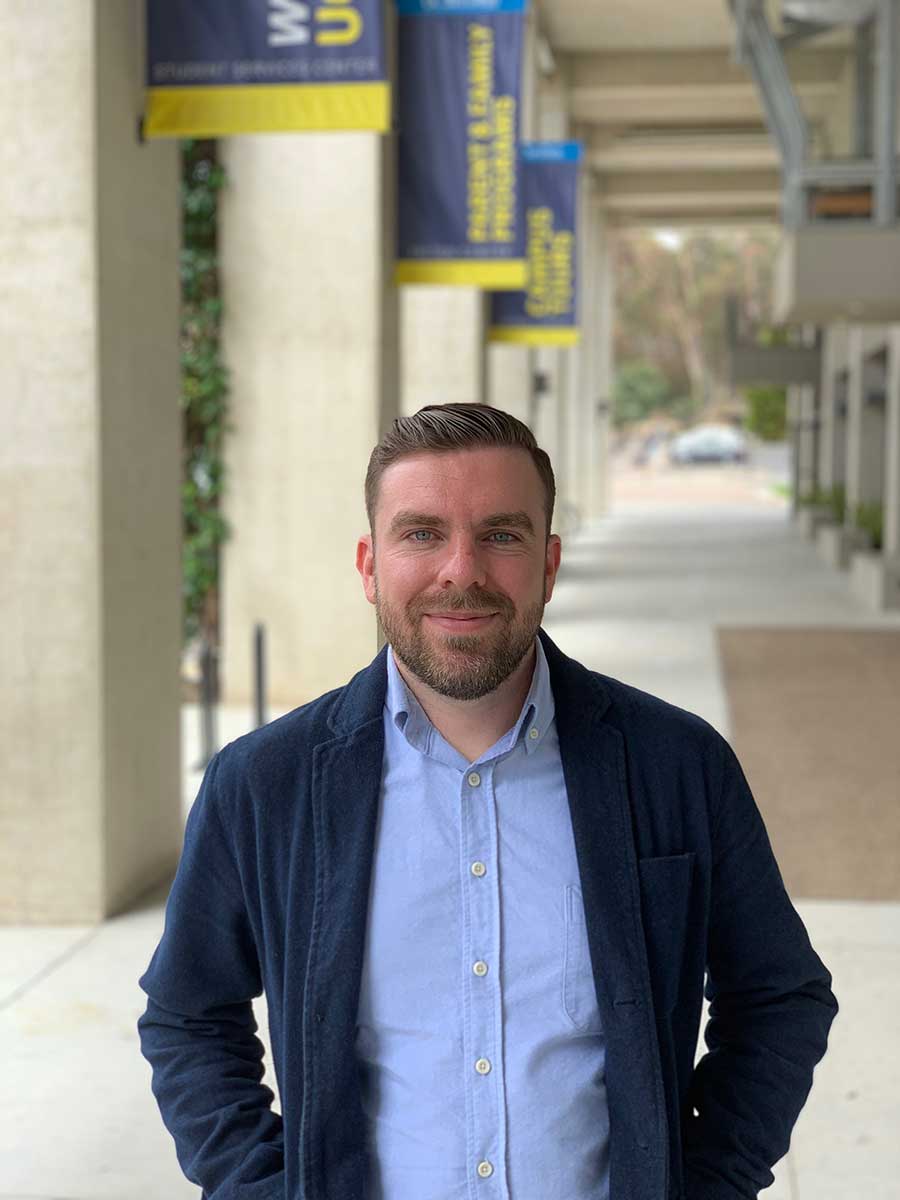

Kevan Aguilar, a Ph.D. candidate in the Department of History, is one of the three selected for the fellowship. He said he has been focusing on accessibility for potential transfer students to learn more about their options after community college. Working at Mesa College, he said he would like to strengthen connections between the college advising center and current transfer students at UC San Diego, so they can give personal insight into their own experience as well as tips to follow once accepted and enrolled.
“I’ve been really impressed at how the community college administration prioritize student success,” he said, explaining how the district implemented a computer loan program and expanded wireless access to students in response to the pandemic.
“They are very passionate about creating accessible learning spaces. I hope that we can incorporate similar models of support at UC San Diego, especially for our first-generation and transfer student community,” he said.
Aguilar, whose university mentor is Vice Chancellor for Student Affairs Alysson M. Satterlund, said interacting with and talking to educators at the community college is giving him a sense of how to incorporate similar forms of student support at four-year universities.
The fellowships are an extension of the Preparing Accomplished Transfers to the Humanities program, called PATH. Launched in 2017 with the successful joint award of $2.59 million from the Mellon Foundation, PATH has now supported more than 100 undergraduate transfer students to UC San Diego during each stage of the academic process: guidance at the community colleges, a specialized Summer Academy at UC San Diego, continued mentorship and employment post-Academy, and successful completion of their degree requirements leading to graduation.
In 2019, the Division of Arts and Humanities and San Diego Community College District were awarded two new, separate grants from the foundation. UC San Diego received $1.5 million and the district $1.2 million to support five key initiatives: increased undergraduate student mentoring, strengthening faculty connections between the two institutions, enhancing the successful PATH Summer Academy, integrating digital technology into the classroom and establishing this internship program for Ph.D. students.
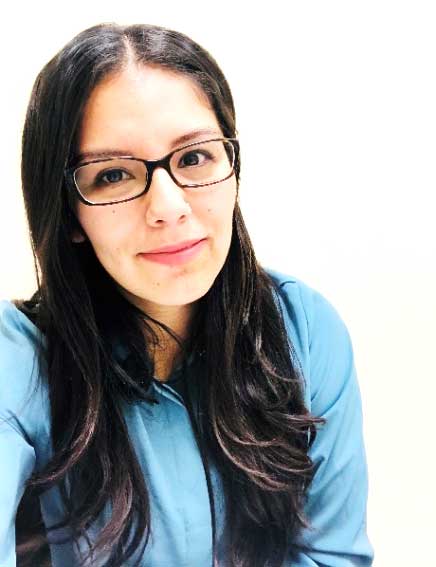

Department of Literature Ph.D. candidate Beatriz Ramirez received some exposure to important administrative role while at UC San Diego. She has held various executive positions with the Graduate Student Association (GSA), first as a professional development coordinator who helped others find their own career paths in academia and private industry. She was then elected vice president of campus affairs, overseeing most of the committees within the GSA.
After serving as the Graduate Climate intern for the Graduate Division, Ramirez said she feels extremely connected to how the division functions, and is eager to compare her experience with the community colleges. Her university mentor is divisional Dean James Antony.
One project already underway for the fellowship is preparing to teach English 101 at Miramar College, and Ramirez is particularly focused on building the syllabus for the class: one, she says, that is unlike anything she has taught at UC San Diego.
“I want to observe more classes, and even talk to faculty one on one for more perspective,” she said. “The conversations are more about understanding where students are in terms of their writing.”
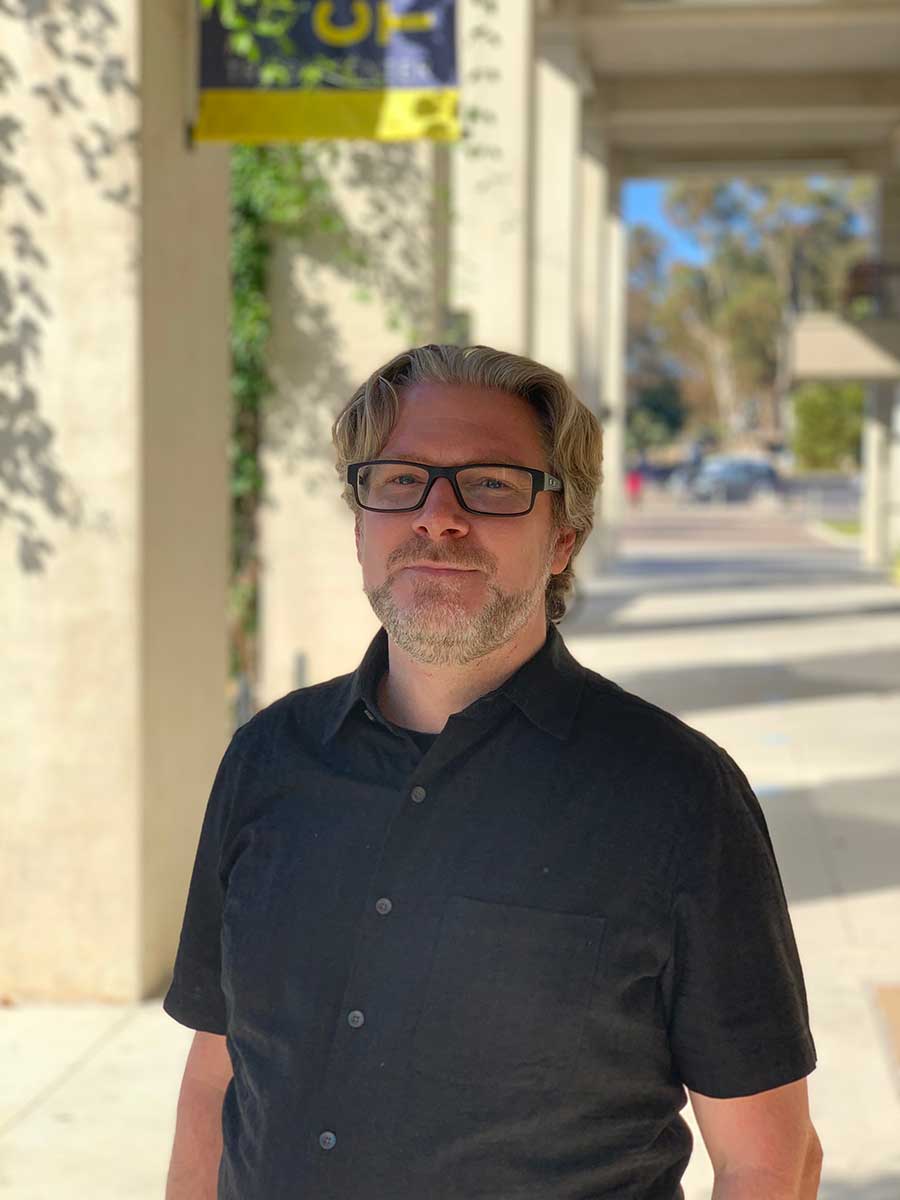

Kevan Malone, a Ph.D. candidate in the Department of History, said he is also interested in what he can learn from the teaching aspect of the fellowship, and is passionate about improving his skills in the classroom. His UC San Diego administrative mentor is Carolyn Sandoval, associate director of the Teaching + Learning Commons and Director of Engaged Teaching.
“I want to teach well and I want to be a mentor to students in the classroom. I really care about pedagogy,” he said. Like Aguilar, Malone also attended a community college when he was first studying for his degree.
Malone said he was happy to see the commitment to social justice by the college faculty and administration at City College, his location placement, and recognizes the need for underrepresented students to benefit from the upward mobility higher education can bring, without being saddled with additional burdens or barriers.
“The main role of professors ought to be fostering a sense of intellectual curiosity. I believe this, more than anything else, drives academic success,” Malone said. “This is obviously not easy for professors, but one thing we can do is make lectures and course material relevant to students’ lives and the circumstances of underprivileged communities. The point is to help them make sense of inequalities and injustices, and understand that there is nothing inevitable or natural about these conditions or realities.”
Della Coletta and the PATH steering committee are planning to expand the Integrated Internship for the 2021-2022 academic year by doubling the number of full fellowships and expanding to include graduate students in the campus’s arts departments and programs. Learn more about the PATH Integrated Internship.




